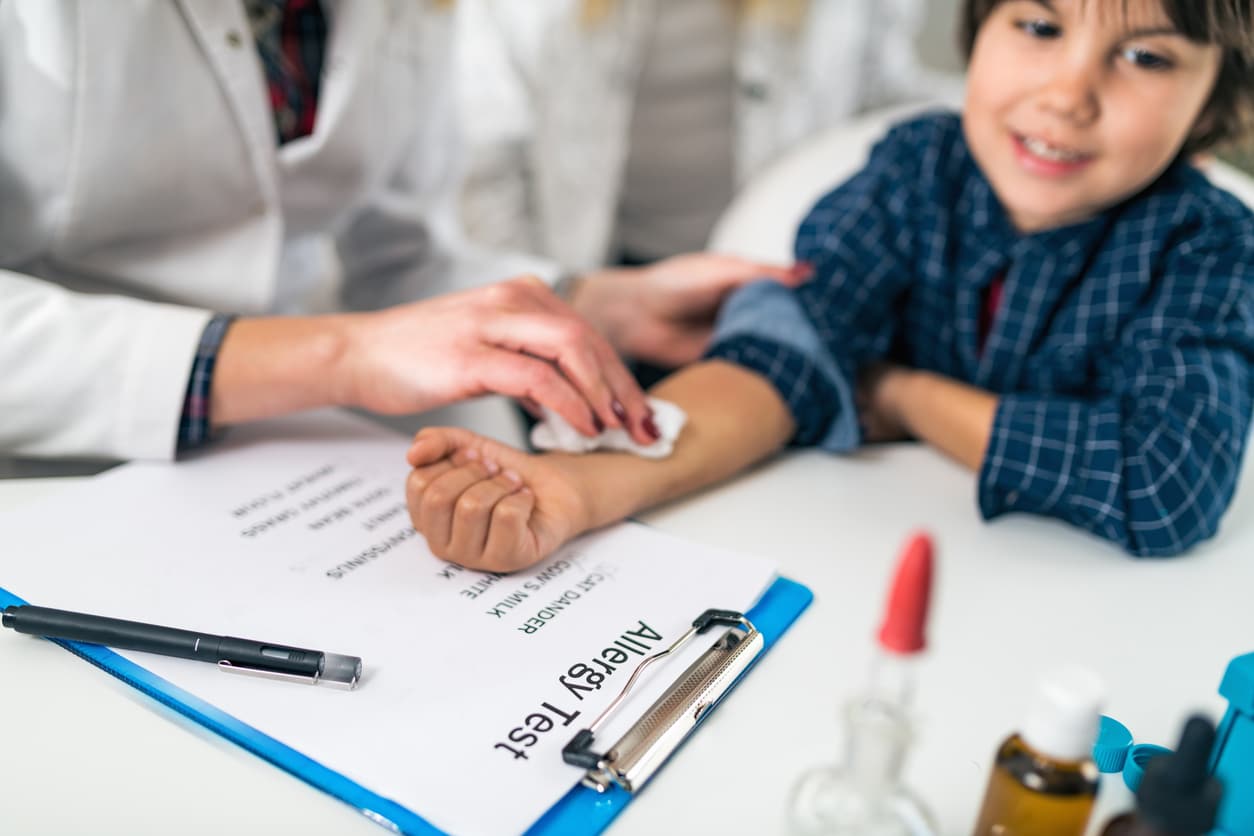If you notice your child is experiencing allergy symptoms after play dates at Rotary Park, you may be considering allergy testing to determine your child’s allergens. Allergies are common, with one in four children in the U.S. likely experiencing allergic reactions due to one or more allergens. Before diving into preparation, it’s helpful to understand the different types of allergy tests available. The two primary methods used to diagnose allergies in children are skin tests and blood tests.
Skin Tests
Skin prick tests involve placing a small amount of allergen extract on the skin and then pricking or scratching the skin’s surface. If your child is allergic to a particular substance, a raised bump or hive will develop at the test site.
Blood Tests
Blood tests measure the presence of allergy-related antibodies in the blood, such as Immunoglobulin E. While blood tests are less invasive than skin tests, they may be less accurate.
Allergy testing can include testing for several allergens, including pollen, pet dander, mold and others.
Preparing Your Child

There are a few steps you can take to help prepare your child for allergy testing, both physically and mentally.
Explain the Procedure
Use age-appropriate language to explain what will happen during the test. Reassure your child that the procedure is quick and relatively painless. Answer any questions they have truthfully and be supportive and encouraging.
Provide Distractions
Bring along comforting items such as a favorite toy, book or electronic device to distract your child during the test. It may be helpful to offer a reward for after the test.
Avoid Antihistamines
Antihistamines can interfere with allergy test results by suppressing allergic reactions. Check with your child’s doctor to determine how long before the test your child should stop taking antihistamines.
Preparing your child for an allergy test involves both mental and physical readiness. By explaining the procedure, offering support and following any pre-test instructions provided by your child’s doctor, you can help alleviate anxiety and ensure a successful testing experience. To learn more about what to expect during allergy testing or to schedule an allergy test, contact ENT Associates of Worcester today.